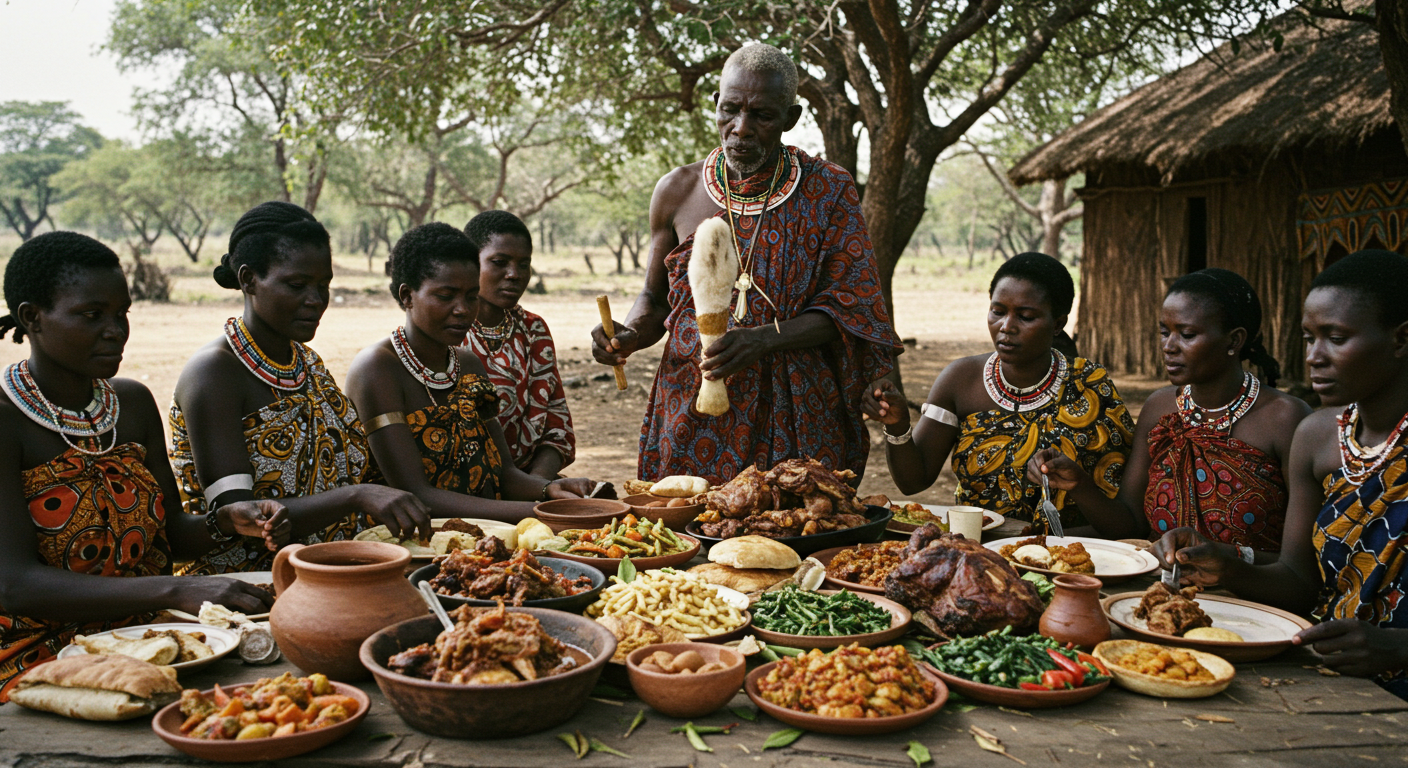In Africa, food is far more than nourishment—it is sacred. From the naming of a newborn to ancestral rites, food is the language of memory, love, and spiritual continuity.
Birth and Naming Ceremonies
The arrival of a child is often marked with celebratory meals. Dishes such as:
Pap and milk (Southern Africa)
Spicy chicken and yam porridge (West Africa)
Honey-sweetened millet porridge (East Africa)
are served to bless the child and mother.
Symbolism: Sweet foods symbolize hope and a good start in life.
Marriage and Unity
Weddings across the continent feature a feast to mark union and abundance. Families cook together, often for days, preparing:
Jollof rice (Nigeria, Ghana)
Pilau (Kenya, Tanzania)
Mealie pap with chakalaka (South Africa)
Food is shared communally, symbolizing the merging of families and the sowing of prosperity.
Funeral Rites and Ancestor Veneration
During funerals, specific foods bring comfort and continuity. For example:
Amala and ewedu (Yoruba) symbolizes the cycle of life and death.
In some Zulu traditions, fermented milk and grains are shared with the ancestors as offerings.
Rituals: Libations of palm wine or water are poured on the ground to invite ancestors to partake in the meal.
Harvest Festivals
The Yam Festival of the Igbo, the Millet Festival in Mali, and the Ethiopian Meskel all celebrate nature’s bounty. Foods are offered to deities and ancestors before the community feasts.
Philosophy: One must give thanks before receiving—food becomes a form of gratitude and communion with the land.
Spiritual Ceremonies
From the kola nut in Igbo land to cowrie-covered gourds in Ghana, food is central to divination and spiritual practice. It’s used in offerings, sacrifices, and rites of passage.
Belief: You don't just eat food—you invite spirits to the table.
In African traditions, food carries memory, identity, and soul. Whether it’s a humble bowl of millet or a lavish wedding feast, every bite tells a story. In honoring food, we honor ourselves, our ancestors, and the communities that shaped us.



